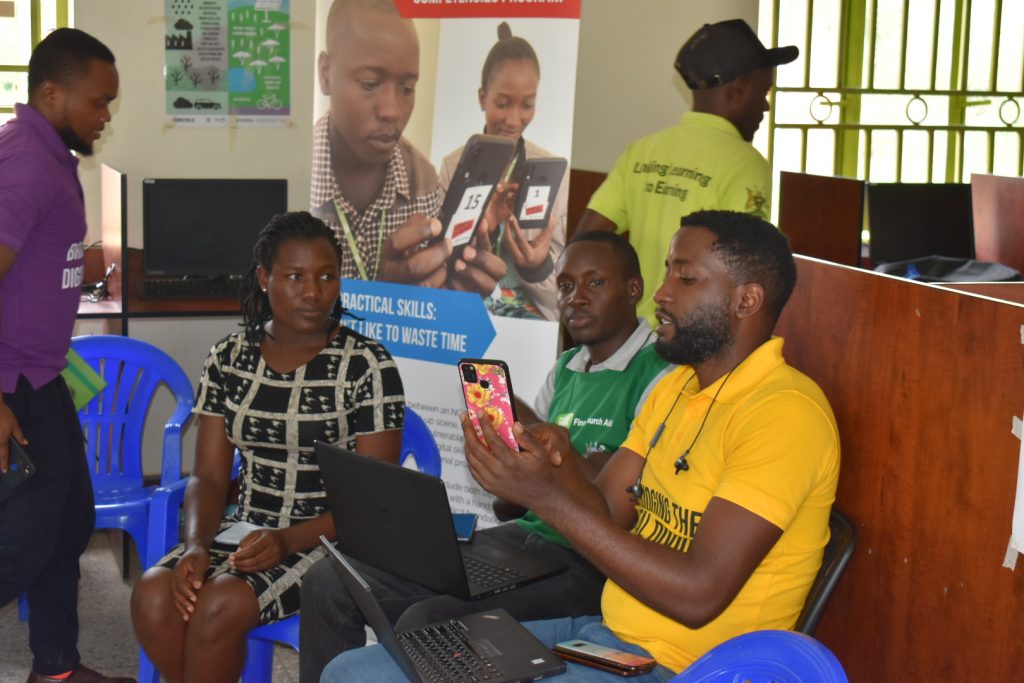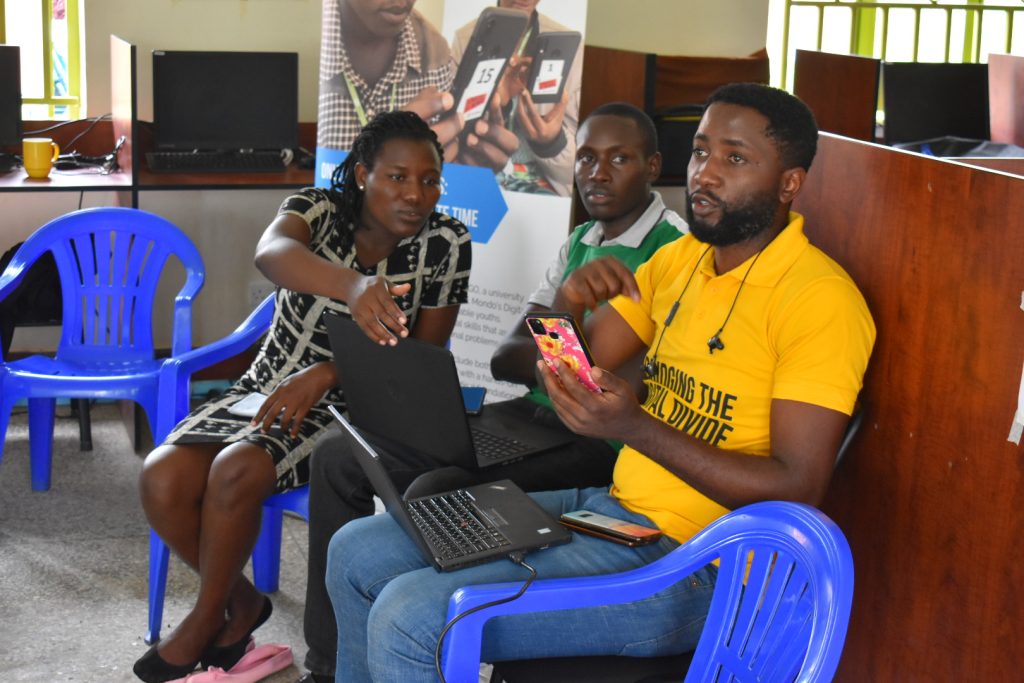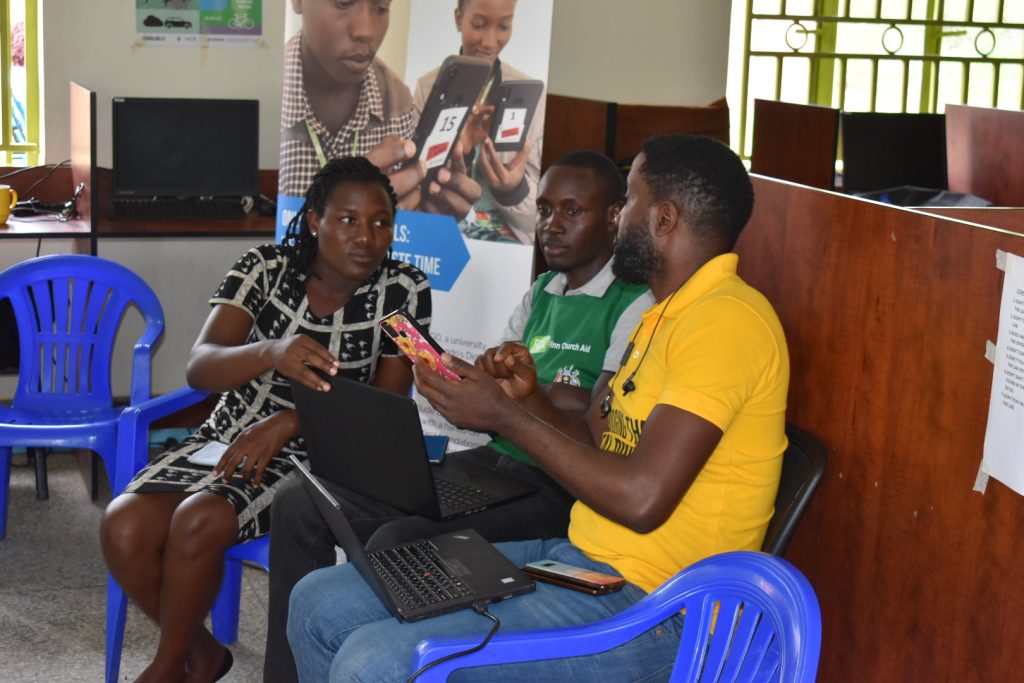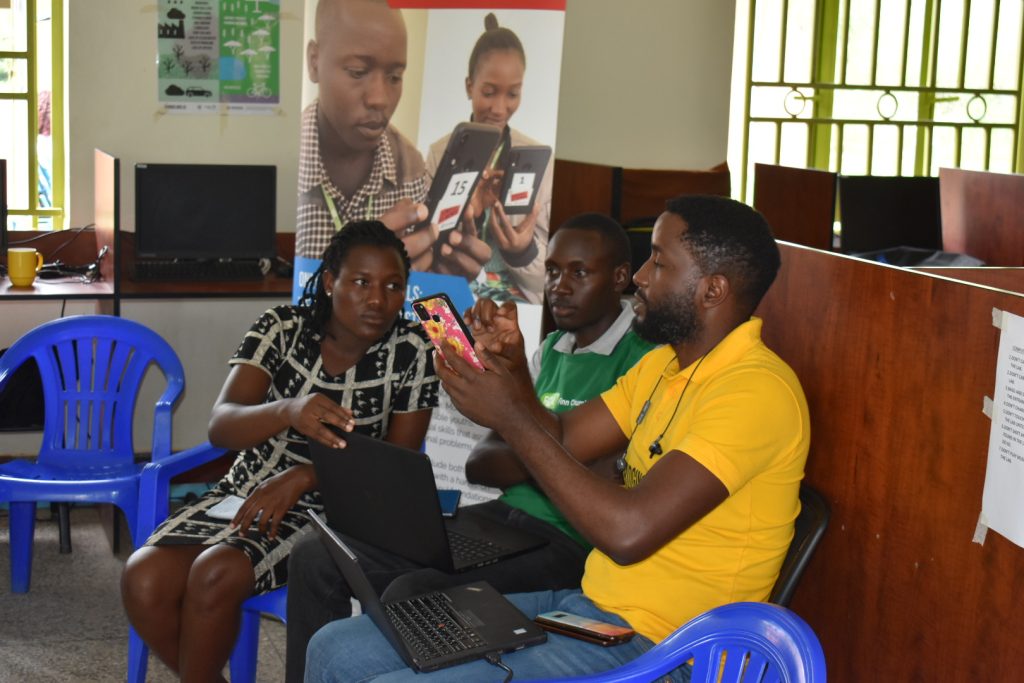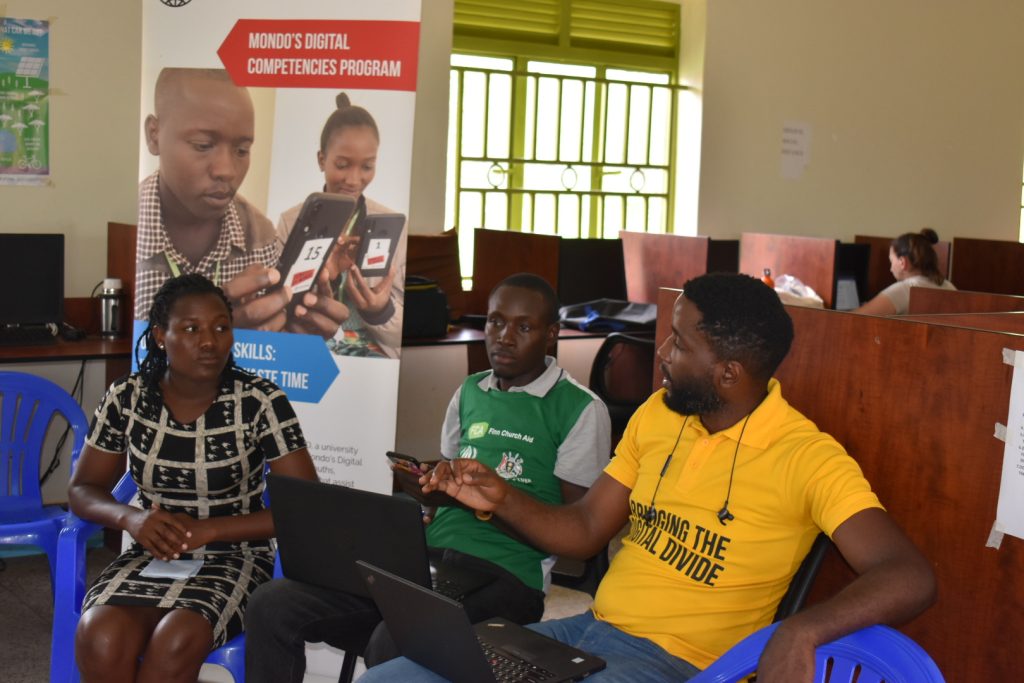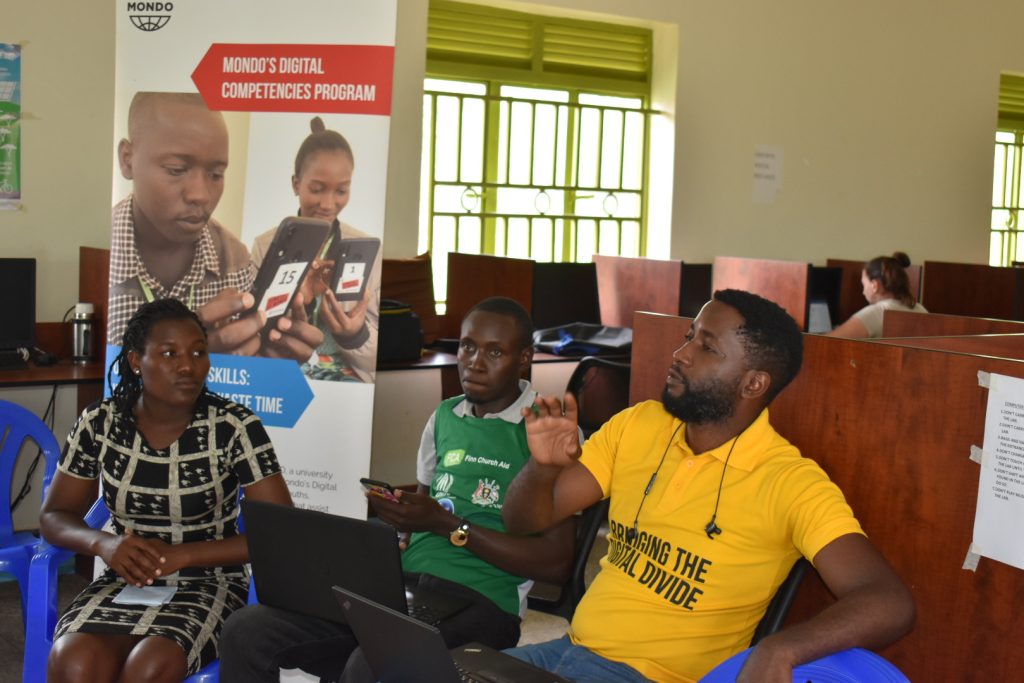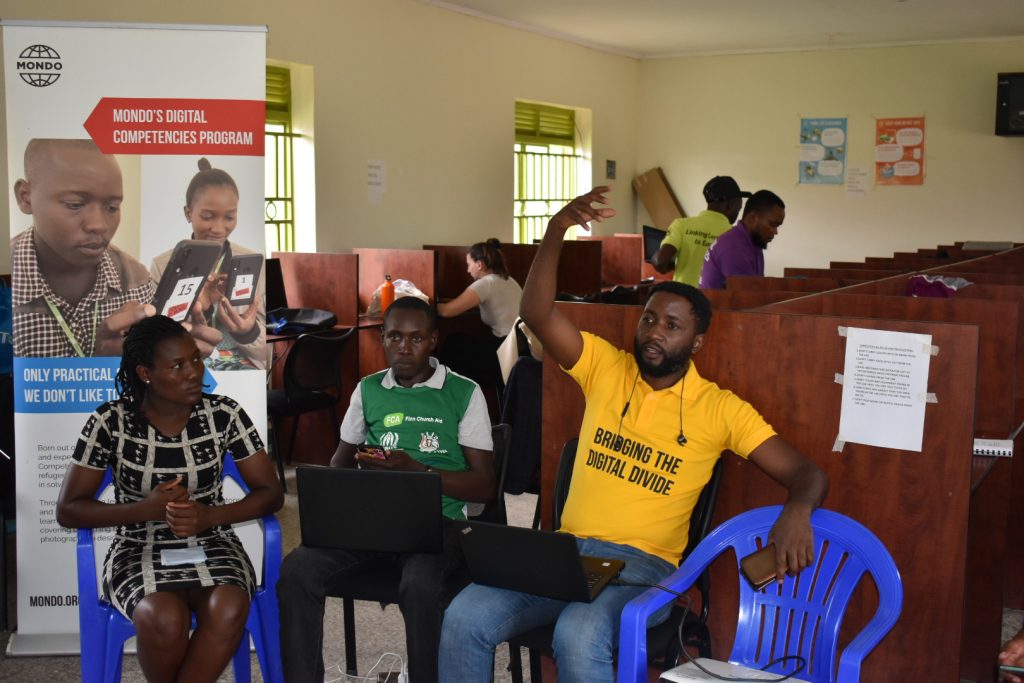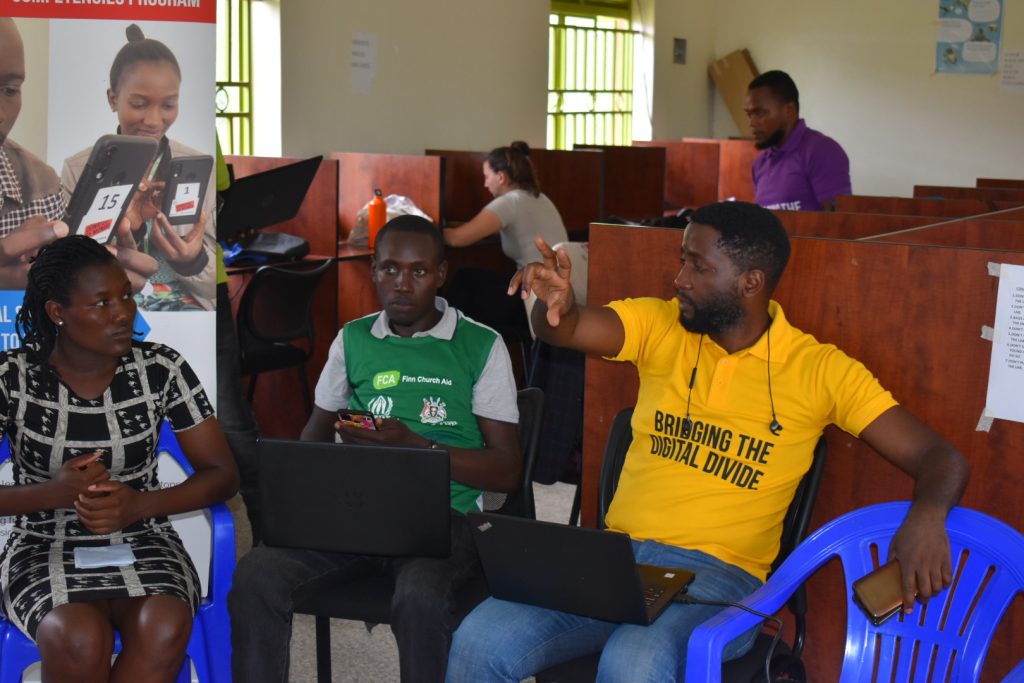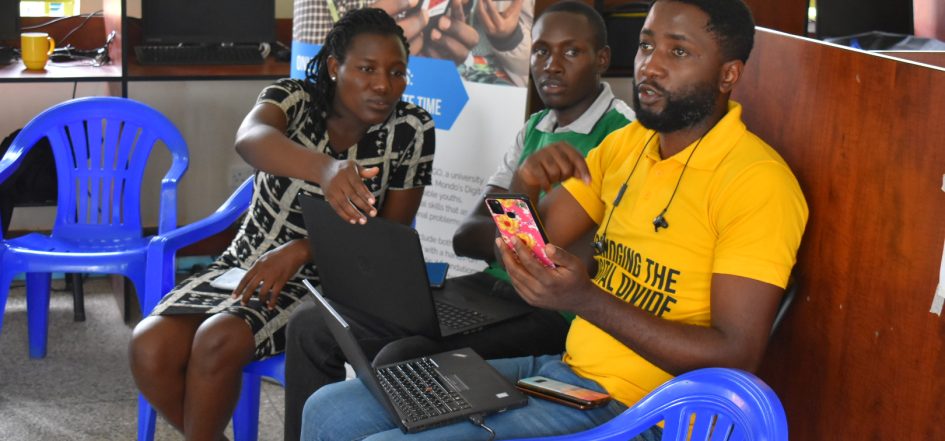Mondo’s Digital Competencies Training (DCT) is about digital literacy and computer skills, but it’s also about using digital devices and the Internet proactively as a tool to engage with society on a professional, educational, and personal level.
While also encompassing the basics of device usage, the program puts a special emphasis on safety and problem-solving. To further the impact, smartphones are central to the program – as the participants are most likely to own a smartphone as their first digital device, the training provides them with relevant and easily applicable everyday skills.
Mondo’s DCT is based on the DigComp framework and has been developed with the Principles for Digital Development in mind. The structure of the training is based on the five key aspects of the European Commission’s DigComp framework: information and data literacy, communication and collaboration, digital content creation, safety, and problem-solving. Exact lesson plans are adjusted to fit the baseline knowledge level of each beneficiary group.
Before starting the training, our team conducts a needs assessment on location. Based on the findings, we adjust a suitable lesson plan based on a variety of content modules:
- Apps to Develop Literacy
- Computer ABC
- Digital Safety and Hygiene
- Google Tools and Online Presence
- ABC of Smartphone Photography
- ABC of Smartphone Videography
- ABC of Design
- ABC of Financial Literacy and Business
- Entrepreneurship in Digital Settings
- Social Media and Marketing
- Creating a Website
The content modules have been created with input from researchers from Tallinn University’s School of Digital Technologies and private sector experts in Estonia.
We have been training refugee youth in Uganda since 2021. We have done work in the following settlements: Bidi Bidi Settlement, Rhino Camp Refugee Settlement, Kyaka II Settlement, and Rwamwanja Settlement.
We have both trained Trainers of Trainers and actual beneficiaries in Yumbe, Kyaka, and Kyegegwa.
Rhino Camp Refugee Settlement.
Rhino Camp Refugee Settlement is a refugee camp in the districts of Madi-Okollo and Terego (both formerly part of Arua District) in northwestern Uganda.
The aim of the project was to raise the capacity of NGO Mondo in innovative education solutions in emergencies, targeting the refugee youth 15-24 years old. In the course of the project NGO Mondo carried out study visits to the Norwegian Refugee Council (NRC) education programs in Uganda.
During our work within this region, we were in OCEA, Yoyo, and Yumbe.
KYAKA 11 Refugee Settlement
I also experienced conducting my first Training of Trainers (ToT) in Kyaka Refugee Settlement. This training is part of a project entitled “Transforming digital learning to Earning in Kyegegwa District”.
The objective of the project was to improve the business-oriented digital competencies of 160 young entrepreneurs. With the skills acquired during the ToT, the trainers were able to train the learners in market-relevant and business-focused digital skills. We focused mainly on business planning, business management, product development, and digital marketing.
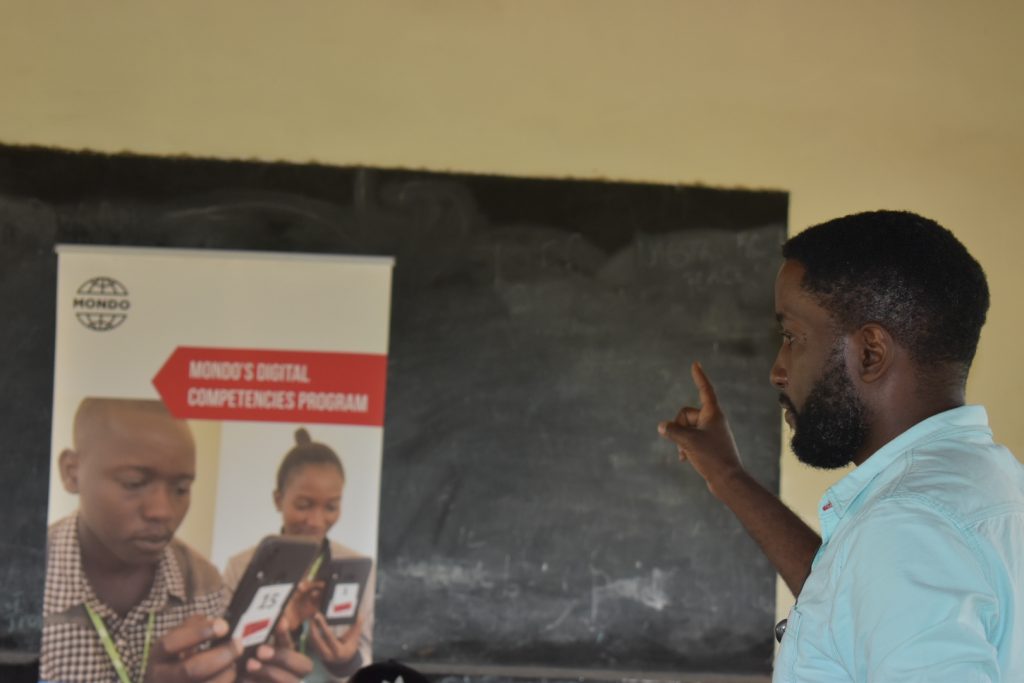
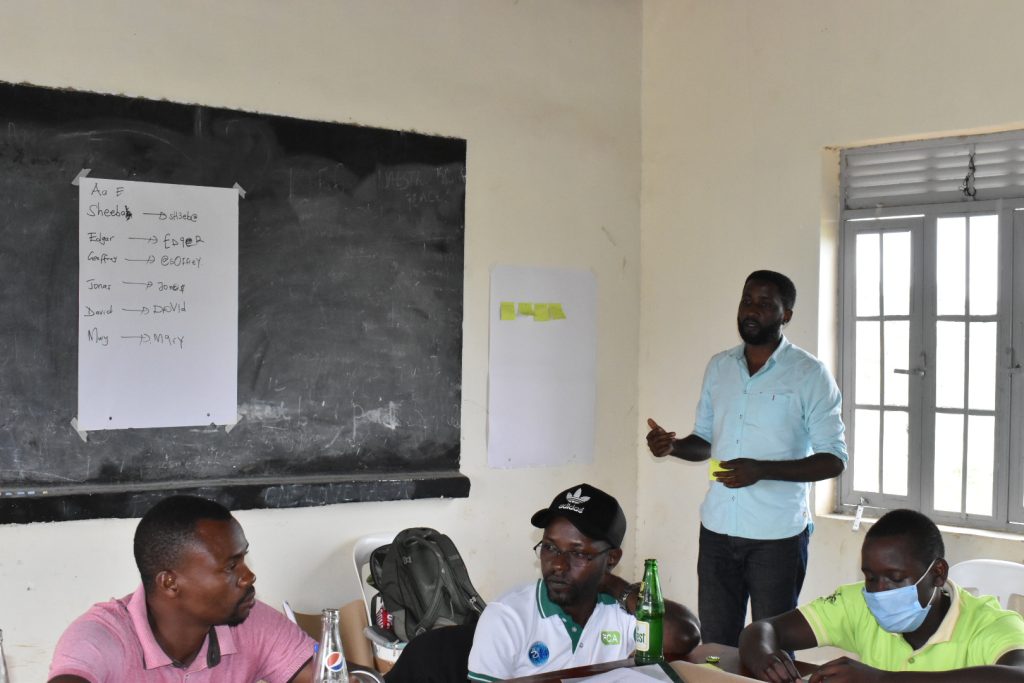
Rwamwanja
I was with Clarisse, Edi, and Judith (Mondo Livelihood Programme Coordinator) in Rwamwanja. We had o 3-days-ICT training for the trainers of Finn Church Aid (FCA) who were working with refugees and host community youth in the Rwamwanja Refugee settlement. It was an opportunity to share difficulties and challenges between trainers and to explore new solutions and ideas to improve their work for the next sessions.
